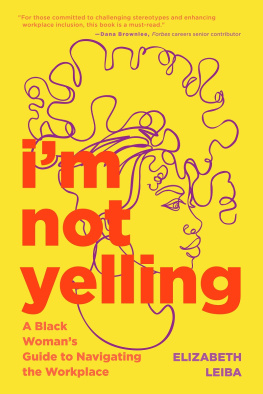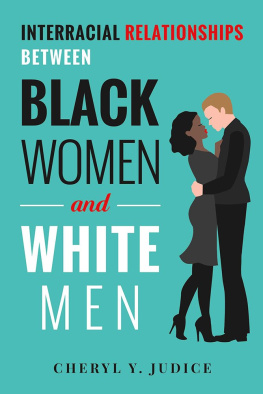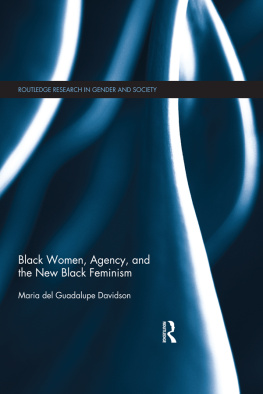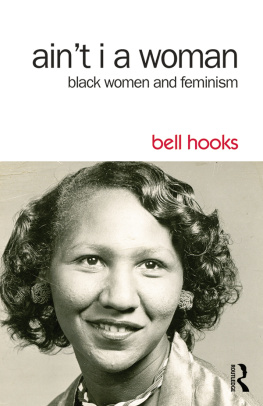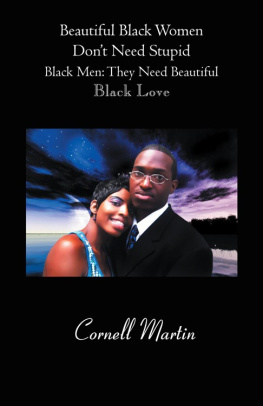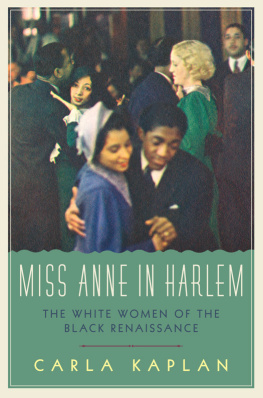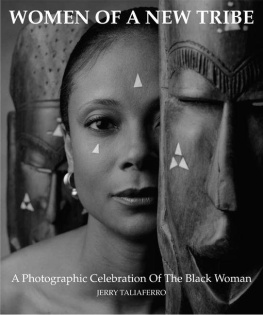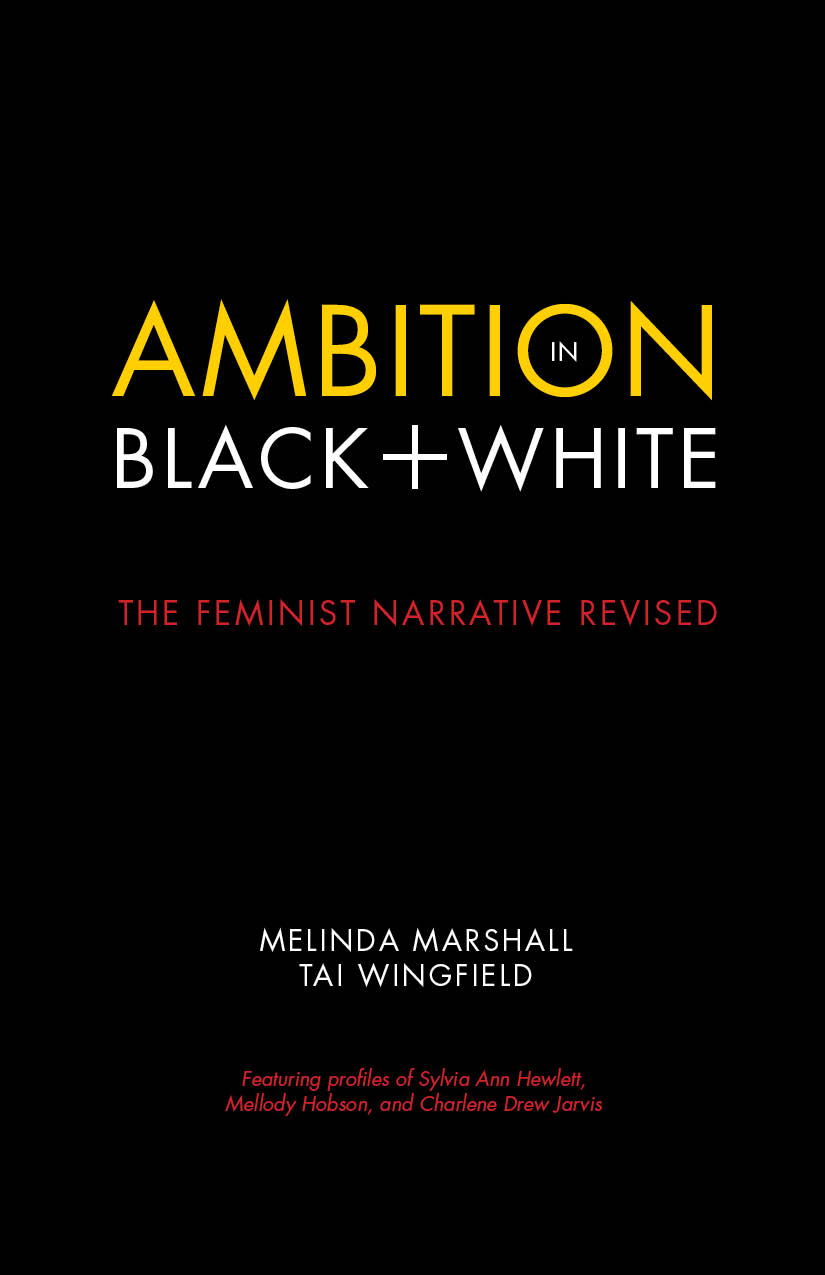

Melinda Marshall
Tai Wingfield
Featuring profiles of Sylvia Ann Hewlett,
Mellody Hobson, and Charlene Drew Jarvis

This is a Center for Talent Innovation Publication
A Vireo Book | Rare Bird Books
453 South Spring Street, Suite 302
Los Angeles, CA 90013
rarebirdbooks.com
Copyright 2016 by Center for Talent Innovation
All rights reserved, including the right to reproduce this book or portions thereof in any form whatsoever, including but not limited to print, audio, and electronic. For more information, address:
A Vireo Book | Rare Bird Books Subsidiary Rights Department,
453 South Spring Street, Suite 302, Los Angeles, CA 90013.
Set in Minion
ePub ISBN: 978-1-942600-93-0
Publishers Cataloging-in-Publication data
Names: Marshall, Melinda, author | Wingfield, Tai, author.
Title: Ambition in black and white : the feminist narrative revised / by Melinda Marshall and Tai Wingfield.
Description: Includes bibliographical references and index. | First Trade Paperback Original Edition. | A Vireo Book. | New York [New York] ; Los Angeles [California] : Rare Bird Books, 2016.
Identifiers: ISBN 978-1-942600-79-4
Subjects: LCSH Feminism. | Feminists. | African American feminists. | African AmericansRace identity. | Sex roleUnited States. | Womens studiesUnited States. |RacismUnited States. | Identity politicsUnited States. | African AmericansEconomic conditions. | WomenEmploymentUnited States. | BISAC SOCIAL SCIENCE / Feminism & Feminist Theory | SOCIAL SCIENCE / Ethnic Studies / African American Studies | SOCIAL SCIENCE / Womens Studies | BUSINESS & ECONOMICS / Women in Business.
Classification: LCC HD6095 .M29 2016 | DDC 331.4/0973dc23
To all the women, black and white, who fought fearlessly to ensure we could have a voice.
P roject Team
P roject Lead
S ylvia Ann Hewlett, Founder and CEO
Q uantitative Research
L aura Sherbin, CFO and Director of Research
P ooja Jain-Link, Senior Research Associate
C harlene Thrope, Research Associate
Q ualitative Research
A nna Weerasinghe, Fellow
P roduction
I sis Fabian, Research Associate
C atherine Chapman, Research Associate
C ommunications
S ilvia Marte, Communications Associate
C ontents
Chapter
Chapter
Chapter
Chapter
Chapter
Chapter
Chapter
Chapter
Chapter
P rologue
D ifferent Pasts, Different Starting Gates
W e can no longer ignore that voice within women that says: I want something more than my husband and my children and my home.
These words, written by Betty Friedan in 1963, galvanized the movement that reshaped female aspirations, launched women into the workforce, and changed the course of history. The problem that has no name, as she described womens malaise, branded the ensuing movement as feminism.
Yet from the get-go, Friedans vision of feminism was not universal. While white, middle-class women framed access to work outside the home as a form of liberation, black women yearned to be liberated from workfrom low-paying jobs with poor working conditions where they had little to no opportunity for advancement. As black feminist author and activist bell hooks challenged, [Friedan] did not tell readers whether it was more fulfilling to be a maid, a babysitter, a factory worker, a clerk, or a prostitute than to be a leisure-class housewife. For the vast majority of black women in 1963, the work available to them was a source of oppression, not liberation; a necessity, not a luxury; a constraint on their fulfillment, not an avenue toward it.
This is not to say that black women had no part in the feminist movement of the 1960s. On the contrary, black women were, in fact, on the frontlines of not one, but two fights for equal rights in the mid-twentieth century. Many black feminists stretched their activism to push for the rights for both women and blacks, often from the margins of both movements. Some black feminists were directly involved in the womens liberation movement, like Civil Rights activist and lawyer Pauli Murray, who cofounded the National Organization for Women (NOW) in 1966 alongside Friedan, and Ms. Magazine cocreator Dorothy Pitman Hughes, who collaborated closely with Gloria Steinem to found the Womens Action Alliance; others campaigned for the rights of black women specifically, such as bell hooks and womanist author and activist Alice Walker. Many of the most influential black feminists, including Frances Beale, Angela Davis, Claudia Jones, Florynce Kennedy and Cellestine Ware, to name just a few, identified more closely with the fight for Civil Rights than with womens liberation, but their leadership in the Black Power movement wasnt lost on the leaders of the womens movement. As Gloria Steinem reflected in a 2015 interview, I learned feminism largely from black women. Women of color basically invented feminism.
What united these early black and white feminist leaders was their quest for equality. Pan-Africanist writer and political activist Amy Jacques Garvey presaged Friedan by several decades when she wrote that the modern woman prefers to be a bread-winner than a half-starved wife at home. Yet white womens career-minded approach to this shared dream grated on black women, as it glossed over glaring racial inequities. As Jacques Garvey pointed out, White women have greater opportunities to display their ability because of the standing of both racesyet who is more deserving of admiration than the black woman, she who has borne the rigors of slavery, the deprivations consequent on a pauperized race, and the indignities heaped upon a weak and defenseless people?
What separated black and white feminists was not the destination they envisioned, but rather where they began and the steps they perceived as necessary to attain their goal. I saw white women as having privilege, observes former Washington, DC Councilwoman Charlene Drew Jarvis. We were not starting at the same place. Indeed, black women struggled even to be seen as women, let alone as women who deserved more respect and accommodation from men. As Sojourner Truth, one of the founding mothers of feminism, observed in 1851, That man over there says that women need to be helped into carriages, and lifted over ditches, and to have the best place everywhere. Nobody ever helps me into carriages, or over mud puddles, or gives me any best place! And aint I a woman? Look at me! Look at my arm! I have ploughed and planted, and gathered into barns, and no man could head me! And aint I a woman?
Different starting gates inspired separate strategies for change, ultimately setting black and white women on divergent paths towards empowerment in the workplace and beyond.
Womens Work
In her 2014 speech in acceptance of the Hollywood Reporter s Sherry Lansing Leadership award, Shonda Rhimes gave Hollywood women a congratulatory pat on the back. Thirty years ago, Id think maybe thered be a thousand secretaries fending off their handsy bosses back at the office, and about two women in Hollywood in this room, Rhimes said. Then she observed, And if I were here, I would be serving breakfast.


